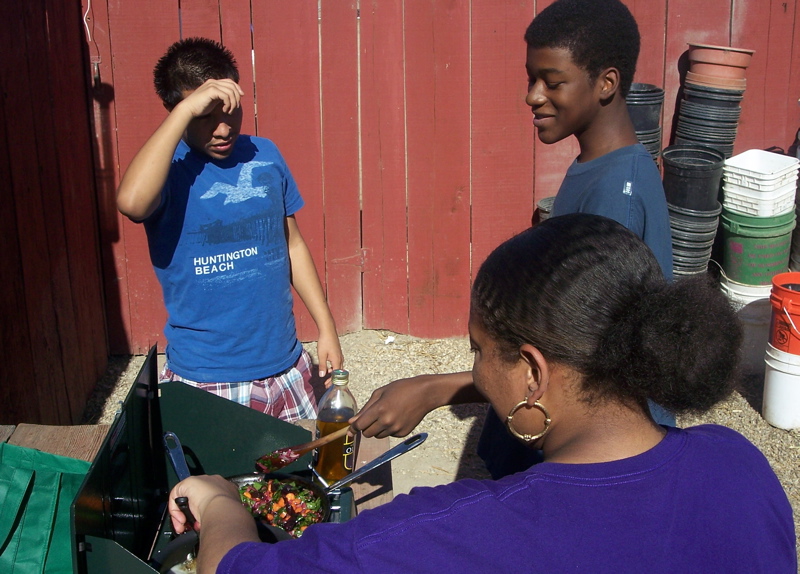Thanks to all who joined RootDown LA's first "Not-Quite-a-Fundraiser"

(See more pics when you click here.)
"What will you bring to the table?" was the theme for the night when we gave RootDown LA it's own little inaugural party at Jennie Cooks Catering last weekend. We asked all of the students, gardeners, chefs, educators, activists, planners, (visionaries all) in attendance, to let us know what they could bring to the table as we work to build healthier communities and support RootDown LA's work in South LA.
Thanks to all who brought their enthusiasm, ideas and donations to help us build connections and raise almost $1,000 right at the door that night.
So what ended up on the table?
Freelance baking (and a drawing of the Secret Goldfish),
Urban farm networking
"Everything and then some - visits, events, produce."
"Negotiations to (hopefully) Win-Win" with school lunch improvements.
Equadorian recipes and willingness to cook with students!
Raised vegetable gardens.
"Time, thoughs, ideas, space."
Peeps to know at UCLA Health Policy Center
Space for a fundraiser
Connection w/ a Student Leadership Summit @ Jan Perry's new green building.
A glossy magazine dedicated to food and RootDown
A mobile culinary lab
Homemade pasta and bread and a garden to share!
A love of cooking, food, health & kids
Nutrition education and food prep in LAUSD
Education to my friends and family, community
Willing to cook with kids and go to the farm.
Media literacy for youth, documentary skills
Video production with youth
Art!
Music [and a nice drawing of a guitar and a guy singing Fa la la]
Yoga and extra hands
Banking expertise, volunteers
Passion for the cause, graphic design support
Improv and theatre games
Vegan blogging, farmers market recipes
Intentional living, integration of meeting needs/desires


